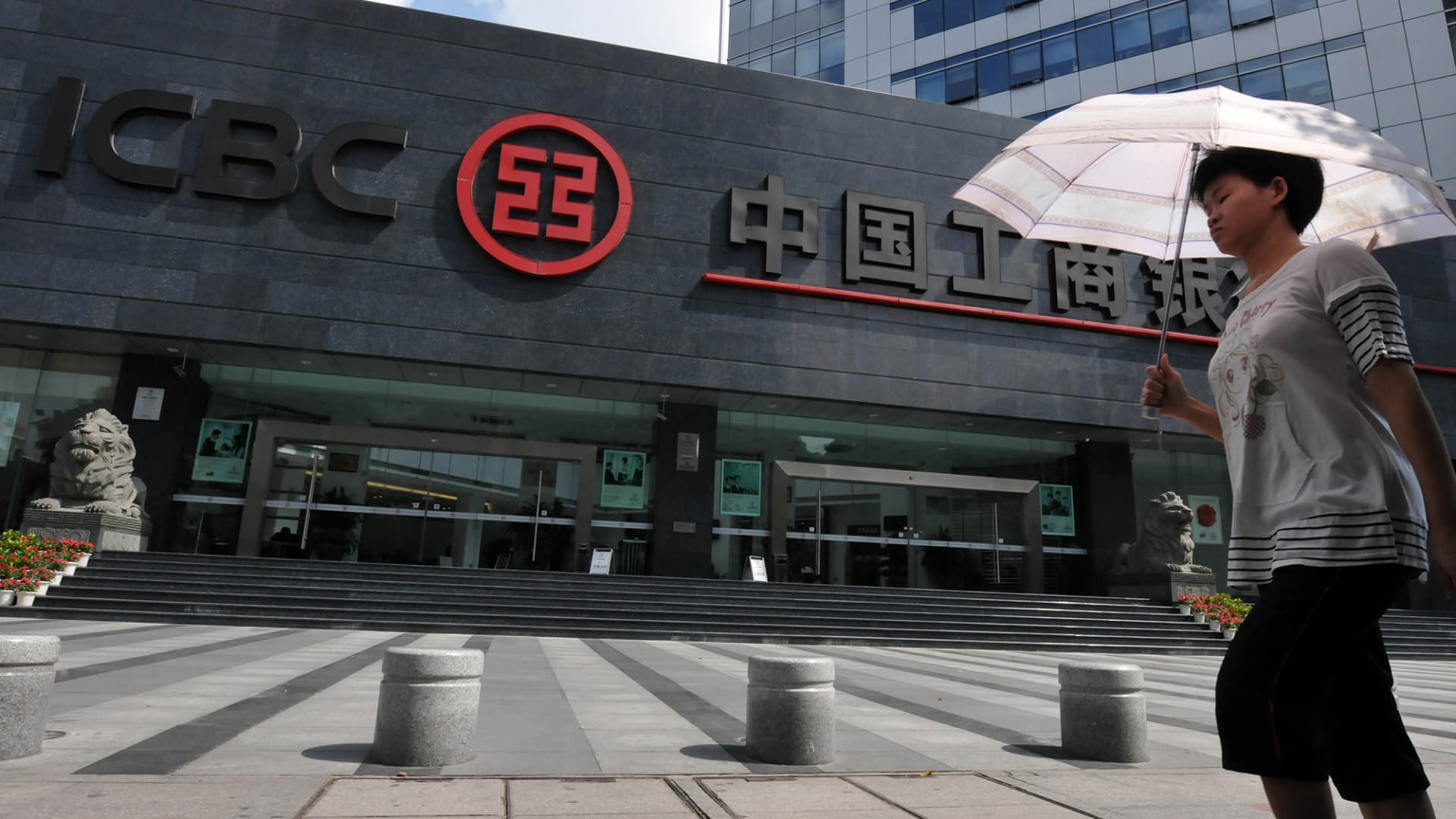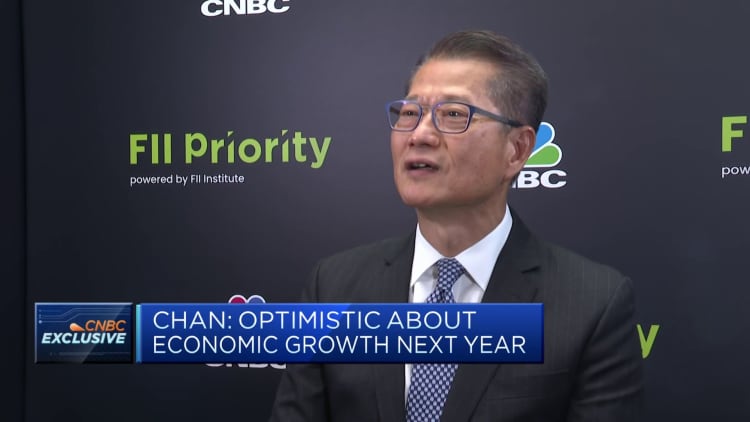Moody’s cuts outlook for eight China banks on potential credit quality decline; downgrades Hong Kong too


A pedestrian walks pass a branch of Industrial & Commercial Bank of China (ICBC) in Fuzhou, Fujian province of China.
VCG | Getty Images
Moody’s Investors Service cut its outlook for eight Chinese banks to negative from stable on Wednesday, following an identical downgrade to China’s government credit ratings a day earlier.
The ratings agency also lowered Hong Kong’s outlook from stable to negative, citing tight political, institutional, economic and financial linkages between Hong Kong and mainland China.
The lenders that were downgraded included the the big four Chinese lenders, Industrial and Commercial Bank of China, Agricultural Bank of China, Bank of China and China Construction Bank Corporation.
“The change in outlook to negative from stable on these banks is directly driven by a potential decline in the rating or credit quality of the central government, given the change in the sovereign rating outlook,” Moody’s said.
Moody’s had cut its outlook for China’s government credit ratings to negative from stable on Tuesday, as it expects Beijing’s support and possible bailouts for distressed local governments and state-owned enterprises would diminish China’s fiscal, economic and institutional strength.
The other banks on the list were China Development Bank, Agricultural Development Bank of China, the Export-Import Bank of China, and Postal Savings Bank of China Co.
The downgrades highlight worries over China’s rising debt level and its effect on GDP growth in the world’s second-largest economy.
Moody’s also slashed its outlook for 22 Chinese local government financing vehicles to negative from stable.
LGFVs are companies set up by local governments to invest in infrastructure and social-welfare projects.
The ratings agency said the LGFV downgrades were primarily a result of the change in outlook to negative from stable for China’s government credit ratings. They were driven by increased risks over lower medium-term economic growth and strains from the ongoing property sector crisis.
“These trends underscore the increasing risks related to policy effectiveness, including the challenge to design and implement policies that support economic rebalancing while preventing moral hazard and containing the impact on the sovereign’s balance sheet,” Moody’s said in a statement.
Moody’s attributed the Hong Kong downgrade to its close-knit relationship with mainland China: “Given the close relationship inherent in the ‘One Country, Two Systems’ policy; in the economy, given the very strong trade links between the two; and in the financial system, given Hong Kong’s banking system’s involvement in the mainland and role as a conduit for finance flows into the regional and global financial systems.”
Not a ‘fair’ downgrade
“I don’t think it is a fair downgrade of our economic outlook. In fact, in terms of our financial system, resilience, our economic resilience, we have very strong buffer … and the economic growth this year is about 3.2%,” Paul Chan, financial secretary of Hong Kong told CNBC’s “Capital Connection” on Thursday.
Chan remained optimistic about Hong Kong’s economic resilience and noted three drivers of growth: export of services, capital investments, and consumption or registering positive growth. He flagged that externally things were still challenging, so the exports would continue to fall a little bit into the future.









